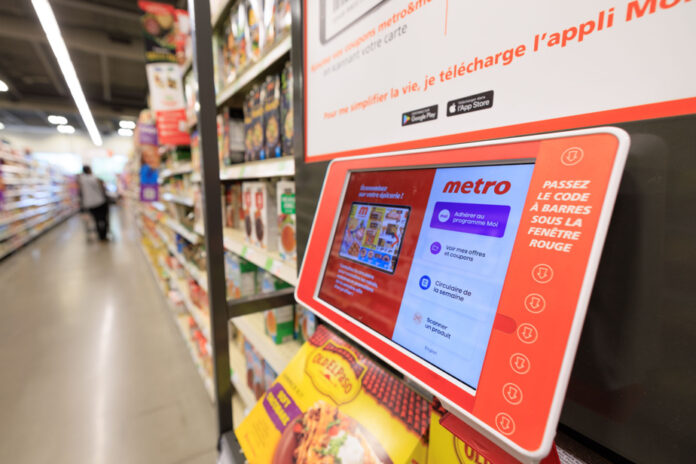Grocer Metro gained market share last spring in a context of high food inflation. The owner of the Metro, Super C and Jean Coutu brands unveiled results that exceeded analysts’ expectations.
In addition to inflation boosting revenue, the Montreal-based company says it has gained market share in the grocery segment. “We have made market share gains in volume and dollars thanks to discount brands (Super C and Food Basics),” President and CEO Eric La Flèche said in a conference call on Wednesday. , to discuss the results for the third quarter ended July 1.
During the quarter, food inflation at Metro hovered around 8%. A very high threshold, but slightly lower than the average for the Canadian food sector. In June, food inflation hit 8.3% in Canada, according to Statistics Canada data. “It’s a difficult operating environment,” comments Mr. La Flèche. Inflation is high. Consumers are looking for bargains. »
The results suggest Metro is indeed gaining market share, said analyst Michael Van Aelst of TD Securities. He points out that Metro’s comparable sales increased by 9.4% in the grocery segment while Loblaw posted an increase of 6.1%. “It points to a second consecutive quarter of market share gains, thanks to strong execution. »
The surging revenues and profits at Metro come at a time when Canadian grocers are under fire from elected officials and consumers, who accuse them of profiting from food inflation to enrich themselves.
Metro has repeatedly dismissed this criticism, responding that its margins have remained relatively stable. Gross margin was 19.6%, compared to 19.8% for the same period last year. Before the pandemic, Metro’s gross margin was 19.7% for the same period in 2019.
“We have had significant cost increases over the past year,” says La Flèche. There is a limit to what we can ask of our customers. So yes, it is reflected in the gross margin. »
There are signs that inflation is moderating, according to the leader. “Compared to last year, the number of price increase requests we receive from our suppliers decreased by 40% in the third quarter. However, the variation remains significant (in the range between 5% and 9.9%). »
Mr. LaFlèche also commented on the class action lawsuit which alleges that Metro and other industry members illegally priced meat to rake in “surplus billions.” “We never participated in a price-fixing cartel,” he said. […] Allegations that the culture in the industry is such that this kind of practice is rampant are simply not true. »
Metro reported financial results that beat analysts’ expectations in the third quarter while its revenues and profits increased by nearly 10%.
In the third quarter ended July 1, the Montreal-based company posted adjusted earnings up 10.9% to $314.8 million. Adjusted diluted earnings per share were $1.35. Revenue rose 9.6% to $6.4 billion.
Prior to the earnings release, analysts had expected earnings per share of $1.29 and revenue of $6.2 billion, according to data firm Refinitiv.
The company reports that the launch of its new loyalty program resulted in costs of 5.1 million.
The company’s net profit, for its part, increased by 26.1% to 346.7 million. Metro considers that, exceptionally, the net profit does not reflect its activities since it includes an accounting item related to obtaining a capital loss deduction for the years 2012 and 2014. The tax authorities had previously refused the deduction that Metro company finally obtained.
Metro shares gained 37 cents, or 0.53%, to $70.07 on the Toronto Stock Exchange late morning.















